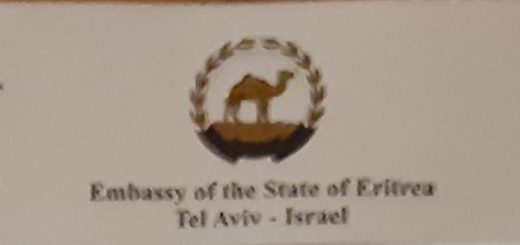Sustainable Water Management for a Plethora of Benefits – Eritrea Ministry Of Information
[ad_1]
Last week, World Water Day was observed in countries across the world. The occasion, which annually falls on 22 March, is an important opportunity to focus attention on the importance of freshwater and advocate for the sustainable management of freshwater resources.
The following article highlights the issue of water in Eritrea and sheds revelatory light on some of the progress that has been achieved over the years.
Massive challenges remain, despite considerable global progress
Water is fundamental to life. Access to water and sustainable water management generate a plethora of benefits to individuals and communities, including health, food and energy security, protection from natural hazards, education, improved living standards and employment, economic development, and a variety of ecosystem services.
However, notwithstanding considerable progress and improvements achieved over the years, it is estimated that more than two billion people worldwide still lack access to safe water (as well as sanitation and hygiene). While the majority live in rural areas, the unserved population is decreasing in rural areas and stagnating or increasing in urban areas.
As well, water scarcity is a growing problem in many parts of the world, with conflicts, climate change, and other crises severely exacerbating the issue. Additionally, water pollution is an increasingly significant challenge which affects both human health and the environment in many countries. According to several agencies of the United Nations, achieving universal coverage by 2030, in line with Agenda 2030 and the Sustainable Development Goals, will require a six-fold increase in current global rates of progress on drinking water.

Looking at Eritrea
Eritrea is an arid and semi-arid country and, as a part of Sahelien Belt, it has experienced recurrent and devastating droughts over many decades. Surface water resources in Eritrea are divided into five river basin systems: Setit, Mereb-Gash; Red Sea Basin, Barka Ansebas and Danakil Ba. The estimated mean annual run-off from these river basins amounts to about 9,967 Mm3 per year. Of this, around 932 Mm3 per year flows to the east, a large portion of it reaching and entering into the Red Sea, and similarly some 8,613 Mm3 per year flows to the west. The rest, amounting to approximately 422 Mm3 per year, remains along the route of the depressions.
Meanwhile, groundwater, although relatively limited, is often the most dependable source of freshwater in the country. However, rivers, lakes, rainfall, and general water levels in some parts of the country are declining due to overexploitation, limited recharging practices, deforestation, and climate change.
As is the case with all other nations, the water sector in Eritrea remains critical for sustainable development and it plays a significant role in socioeconomic growth, poverty alleviation, food security, and environmental sustainability. It also assumes great significance in enhancing modernization, industries, tourism, and agricultural activities.
Accordingly, the Ministry of Land, Water, and Environment has sought to put in place a comprehensive policy and legal framework for the effective and sustainable management of the water sector. The Water Policy, Water Law, Water Sector Institutional Framework and the Water Sector for Human Development documents were drafted in 1997, before being revised a decade later, in 2007. Collectively, these set out and promote the principles of integrated water resources management as a means to ensuring sustainable management and utilization of water resources, as well as promoting the full inclusion of all population groups and national sectors in the country’s water management, usage, and development activities.
Owing to significant investments in water infrastructure and conveyance systems, appropriate policies and regulations, and a range of other efforts and interventions, access to safe, clean water in Eritrea has increased. Specifically, nationwide access to clean water is approximately 85 percent, whereas it was 13 percent in 1991. Importantly, reflecting the concept of “leave no one behind” and in line with Eritrea’s enduring commitment to social justice and equality, efforts are being made to bridge the historic rural-urban gap. In particular, access to water in urban areas has risen from 30 percent to above 92 percent, while in rural areas it has gone from 7 percent to almost 80 percent.
Additionally, access to water has also improved in schools, with more than 50 percent of all schools in the country now having access to safe, clean water service, which is much greater than in previous years. Worth noting, too, is that access to access to clean, safe water has also improved across all health facilities, helping to promote infection prevention and control, supporting healthy deliveries, and playing a role in reducing neonatal mortality risk.

Among the main steps undertaken to improve the availability of water for irrigation and household consumption and increase resilience nationwide has been the construction of a huge network of dams, catchments, and ponds. Specifically, through the collective efforts of the government, communities, and various other national institutions, the number of dams and ponds in Eritrea has been increased from 138 at independence to nearly 800 at present, with vastly improved nationwide coverage. Last year, 16 micro-dams were built, with 25 more in various stages progress and projected to be completed in 2024. As well, plans are in place to launch the construction of 17 additional micro-dams, which are projected to be completed in 2024/25.
Despite commendable achievements and progress made, Eritrea remains committed to making further improvements and ensuring long-term water security. For instance, given the huge volumes of water that agriculture consumes, management is being improved in agriculture and continued efforts are being made to promote water conservation and efficiency, including investments in information, technologies, and capacity.
Eritrea is also taking steps to protect and sustain water-dependent ecosystems, while also steadily shifting the national approach to agriculture from furrow irrigation to pressurized irrigation. Additionally, old pipelines are being replaced, while new pipelines are being installed to provide more communities with reliable access to safe, clean water.
[ad_2]
Source link



